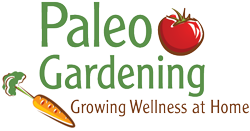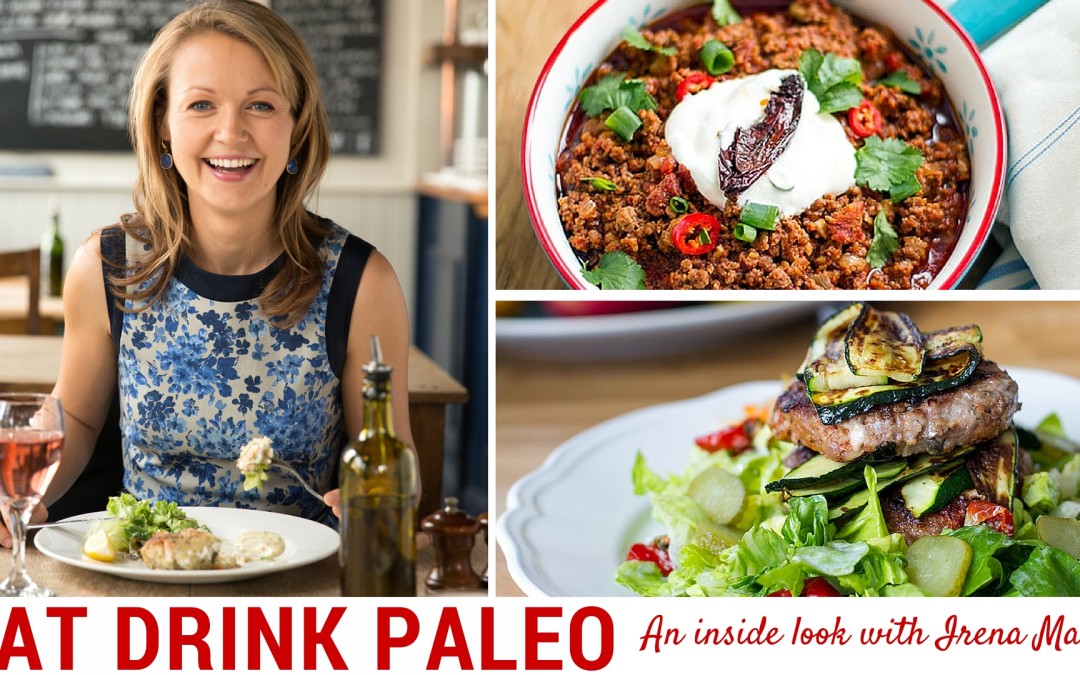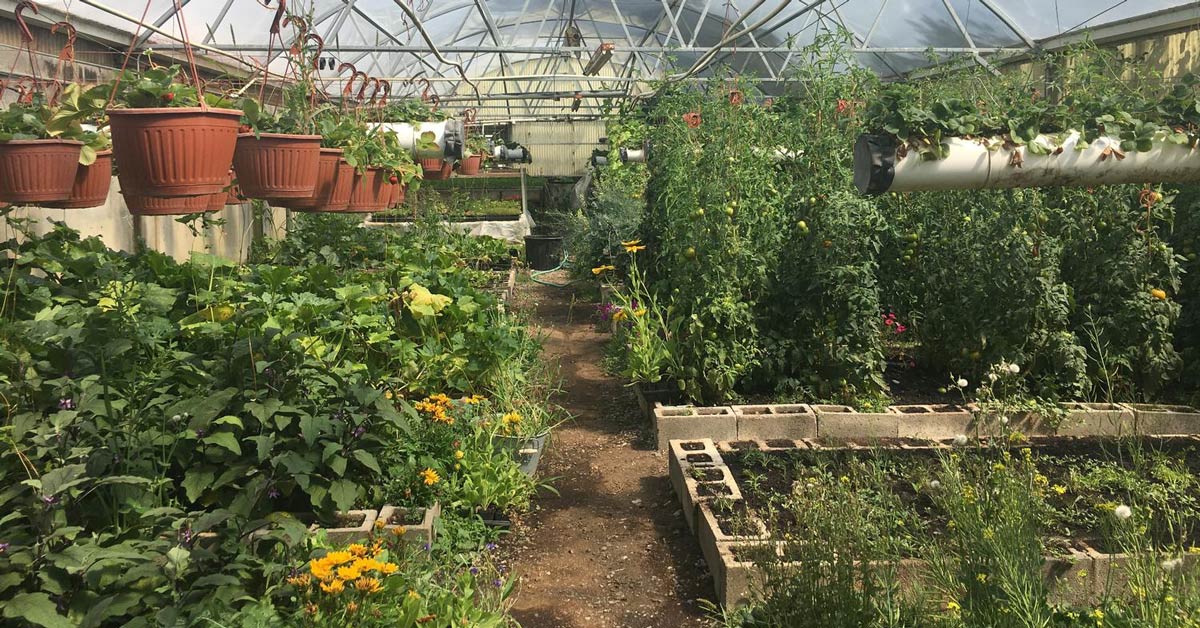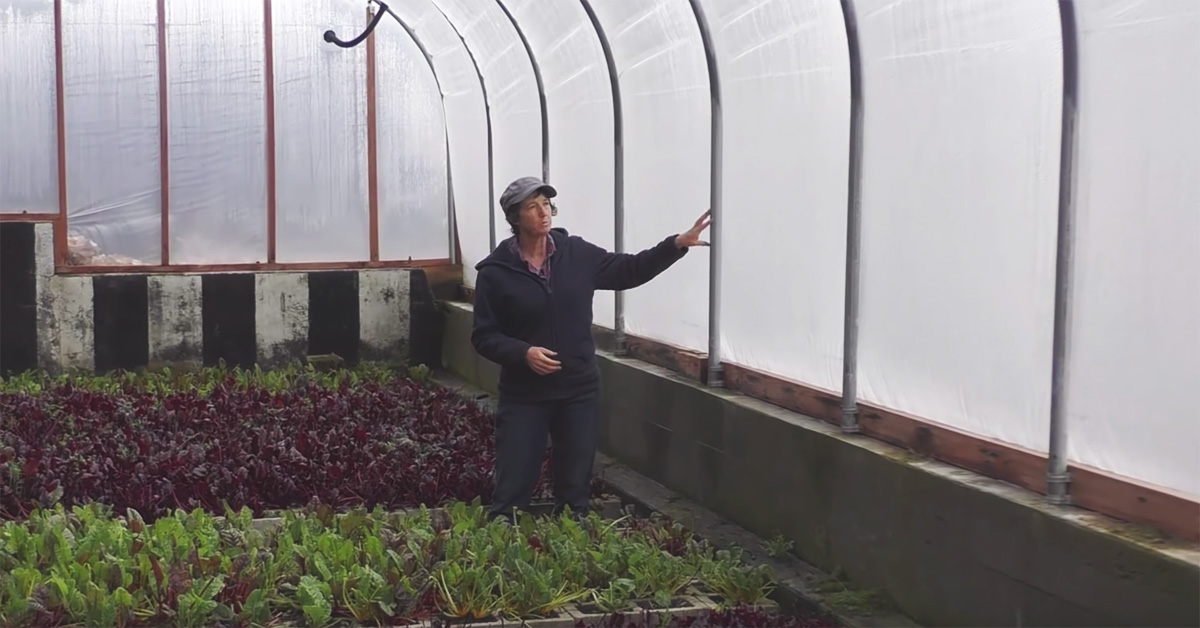Irena Macri is a cookbook author, creator of Eat Drink Paleo and a speaker. Her mission is to make the Paleo lifestyle for everyone by sharing creative recipes, new cuisines and inspiring wellness articles. Recently she agreed to a written interview describing her Perfect Health/Paleo diet, how she left her job to begin full time food writing and the secret to meeting a good butcher no matter where you live. Join us in the Paleo Garden to get to know Irena Macri!
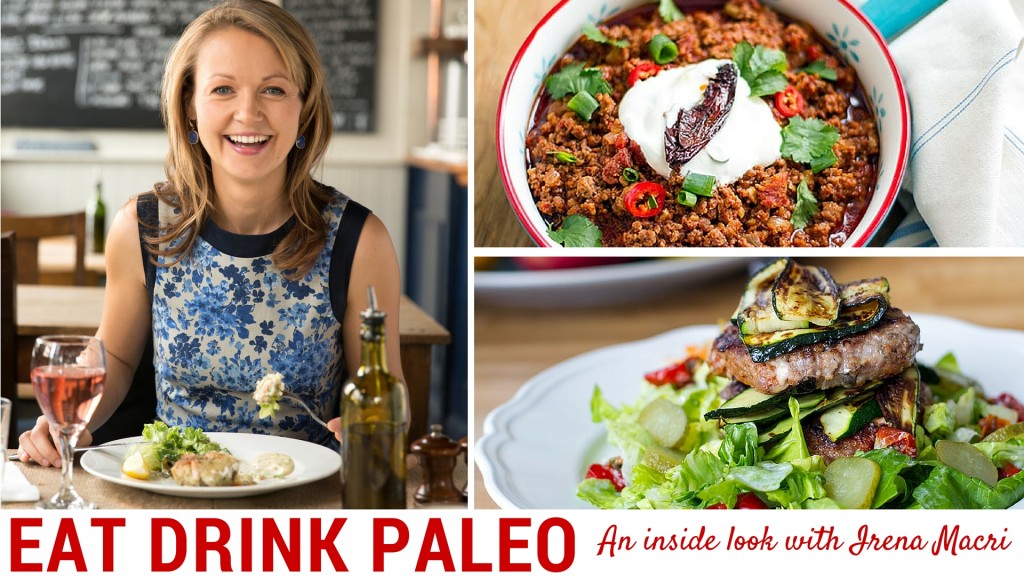
Irena, how would you explain all that you do to anyone unfamiliar with your work?
I’ve always been passionate about health and wellbeing but it wasn’t until I discovered paleo and started learning about the benefits of eating whole, unprocessed foods that I felt compelled to share my message and experience with others.
I started my website Eat Drink Paleo because I felt that paleo diet is heavily misrepresented in the media and many people think it’s very restrictive or lacks variety. I wanted to show that it’s actually the opposite of that.
I wanted show people how delicious, varied and accessible paleo food can be. So today I use blogging and cookbook writing as a way to communicate that passion for good, real food and wellness, and to help people change their lifestyle habits for the better.
I do wear many hats so it’s not easy to explain to people my day-to-day job but it involves a lot of recipe development, food photography, online publishing and engaging with my community. If I’m not outdoors, you will find me either in the kitchen or on my laptop.
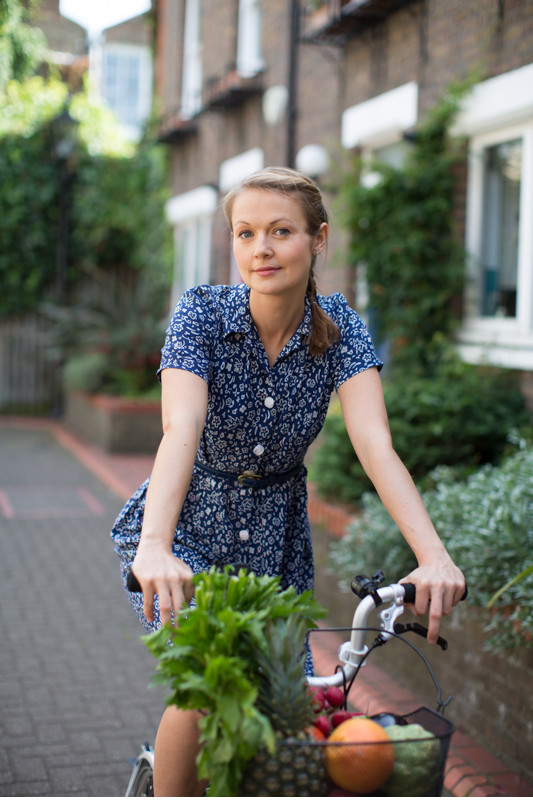 Everyone has a unique story of how they regained their health in the Paleo World. Could you tell me about your journey to health?
Everyone has a unique story of how they regained their health in the Paleo World. Could you tell me about your journey to health?
About 5 years ago my mum went through two cancers. She is luckily in remission but that experience made me want optimise my own diet and lifestyle to foster better health and to promote longevity. I stumbled on paleo through friends and after doing my own research and reading a few books about it, I fell in love with its basic philosophy of eating whole, nutrient dense foods and living in a more natural, holistic way.
I remember the transition wasn’t sudden. I took my time, eliminating wheat and sugar first, and then slowly reducing the amount of other grains and legumes I ate. I started eating protein with every meal, getting more Omega-3 fatty acids and just eating more fat in general. I started to feel my energy levels changing – they were more consistent throughout the day and I stayed much more satiated between meals. I stopped getting sugar cravings in the afternoons. The changes in the way I felt motivated me to keep going until the way I ate just became natural.
For me personally it wasn’t a difficult change because I already ate lots of vegetables and protein and I don’t really have a sweet tooth so eliminating processed sugar and sweets was quite easy. The hardest part was to retrain my brain about the place of fat in the diet and what the breakfast should look like. It’s kind of the reverse of what you know.
Since then I have adapted the original paleo framework to suit my body and lifestyle, so I include some white rice and dairy in moderation, but for the most part I just love the way the paleo way of eating makes me feel and the fact that it has taught me to listen to my body.
How has your personal Paleo journey affected the way you serve others?
I think the most important thing for me was being able to tailor the paleo diet to suit my needs and lifestyle. I’ve experimented with eliminating and adding back certain foods to find the best balance, and through that I know that I can hand some white rice and dairy for example.
I have also been a big believer in the 80/20 rule. I think that in order to sustain paleo long term, it helps to have some flexibility to enjoy a treat and a glass on occasion. This has enabled me to really enjoy this diet and lifestyle for 5 years now. I never even think of it as a diet.
That’s the attitude and approach that permeates everything I do and my readers and followers appreciate my transparency and vulnerabilities. They know that I am the opposite of ‘the paleo police’ and that guilt and shaming are not part of my ethos.
What was the catalyst for you to leave your job and become a food blogger?
I was in a corporate world for close to 10 years and although I enjoyed my work and I was very good at it, I eventually realised that it wasn’t what I was truly passionate about. My last job before I started my website was particularly stressful and unrewarding, it was a very high paying position with lots of responsibilities but it was lacking meaning and purpose for me. I remember one day I was in tears in my office and I thought that was it, time to move on. I handed in my letter of resignation the next day and never looked back.
Are there any exciting ideas for the future of Eat Drink Paleo?
Well I have two cookbooks under my belt with a publisher and I still publish a few of my own eBooks and obviously all the free content on the website but I think the next big thing would be a comprehensive paleo program with coaching, meal plans, recipes, group support and all that jazz. I really want to create something that will guide and help people to change those habits once and for all. It will most likely be a collaboration, I love working with other people. Watch that space!
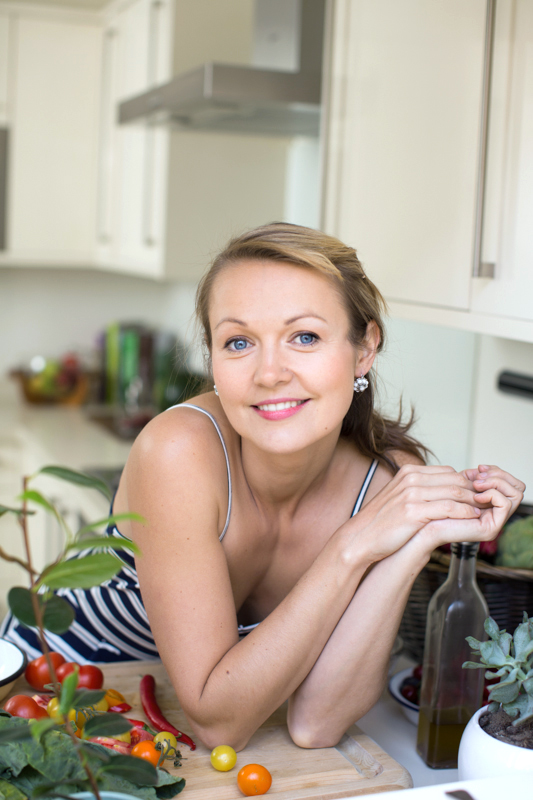 On your blog you mention that you follow the Perfect Health Diet, how does this differ from the Paleo diet?
On your blog you mention that you follow the Perfect Health Diet, how does this differ from the Paleo diet?
The Perfect Health Diet is quite similar to paleo except that it includes more safe starches and some healthy dairy choices like butter and fermented products. I do find that having a few more carbohydrates from safe starches such as white rice, root vegetables, and even some white potatoes, tends to agree with my body. The PHD diet also recommends regular fasting from dinner to midday then next day but I only do that on some days. I kind of take the best from two approaches and combine it into my own way of eating. I highly recommend reading The Perfect Health Diet book, it’s full of amazing insights into nutrition and healthy eating.
On Paleo Gardening we are passionate about making the Paleo lifestyle available and affordable for everyone. Do you have any tips for Paleos who might be struggling with finding and affording whole foods?
I think the cost goes up when you try to buy too many specialized foods, supplements and so called ‘superfoods’ because someone on social media recommended them. We don’t all need to use raw cacao and matcha powder in our recipes.
If you stick to the basics and keep it simple, the paleo diet becomes quite affordable. Get your grass fed meat in bulk and freeze in portions. Buy cheaper cuts of meat and slow cook them. Get a few basic herbs and spices and rotate those around in different dishes. Stock up on cheap staples like eggs, tinned sardines, tinned tomatoes, carrots, cabbage, sweet potatoes, onions, whatever greens are in season and some apples, pears and bananas. Those are all very affordable! Frozen whole foods, shrimp and fish are totally fine to use, especially if you’re making stews and soups. Growing your own is obviously going to save you money and provide the best quality veggies and fruit, even if it’s just a few pots of fresh herbs. And one last thing, planning and batch cooking is also a great strategy to cut costs.
We are spoiled living in the countryside where we have relationships with our butcher. For those in the city, how would you recommend befriending an organic butcher?
Bribe them with paleo brownies! Really though, I would do a little research into the butchers in your area and simply go in and ask a few questions. ‘Where does most of your meat come from?’,‘Do you know the farmers?’, ‘Do you offer grass fed beef or outdoor bread pork?’ ‘Do you take special orders for bones or wild game etc?’ and see what they say. You can always explain that you’re trying to eat healthier and that you care about where your food comes from. If the butcher is not interested in having those conversations, then it’s probably not the one you want to go with. That means they don’t really care about their customers or the meat they sell.
Recently, you spoke at the Health Unplugged Conference in England, how did that go?
It was fantastic, lots of amazing, passionate and smart people gathered together for two days. Last year I actually did a presentation on ‘paleo on the budget’ and this year I was presenting a fermentation workshop, which got lots of great feedback. I was also on many panel discussions and learnt a lot from other speakers. I particularly enjoyed the talk by Dr. Terry Wahls, who discussed the importance of diverse microbiome (aka good gut health) and the role that fibre plays in that, especially from fruit and vegetables. Emily McGuire gave a great talk on ketogenic diets and all the research that’s being done around the effects they can have on neurological diseases and even cancer. Paleo and sustainability was discussed on in a few presentations, I am hoping some of them might be available online soon.
I love your article about embracing the paleo diet. What would be your number one tip for embracing a Paleo lifestyle?
Focus on everything you can eat rather than on what you can’t.
Thanks so much Irena for taking the time to share your thoughts with the Paleo Gardening community!
Do you want more from Irena Macri? Order her cookbooks, ebooks and follow her blog at Eat Drink Paleo, trust me, you won’t want to miss out on this incredible food writer!
Until next time may your garden be easy, fun, productive and always organic,
Lynn
